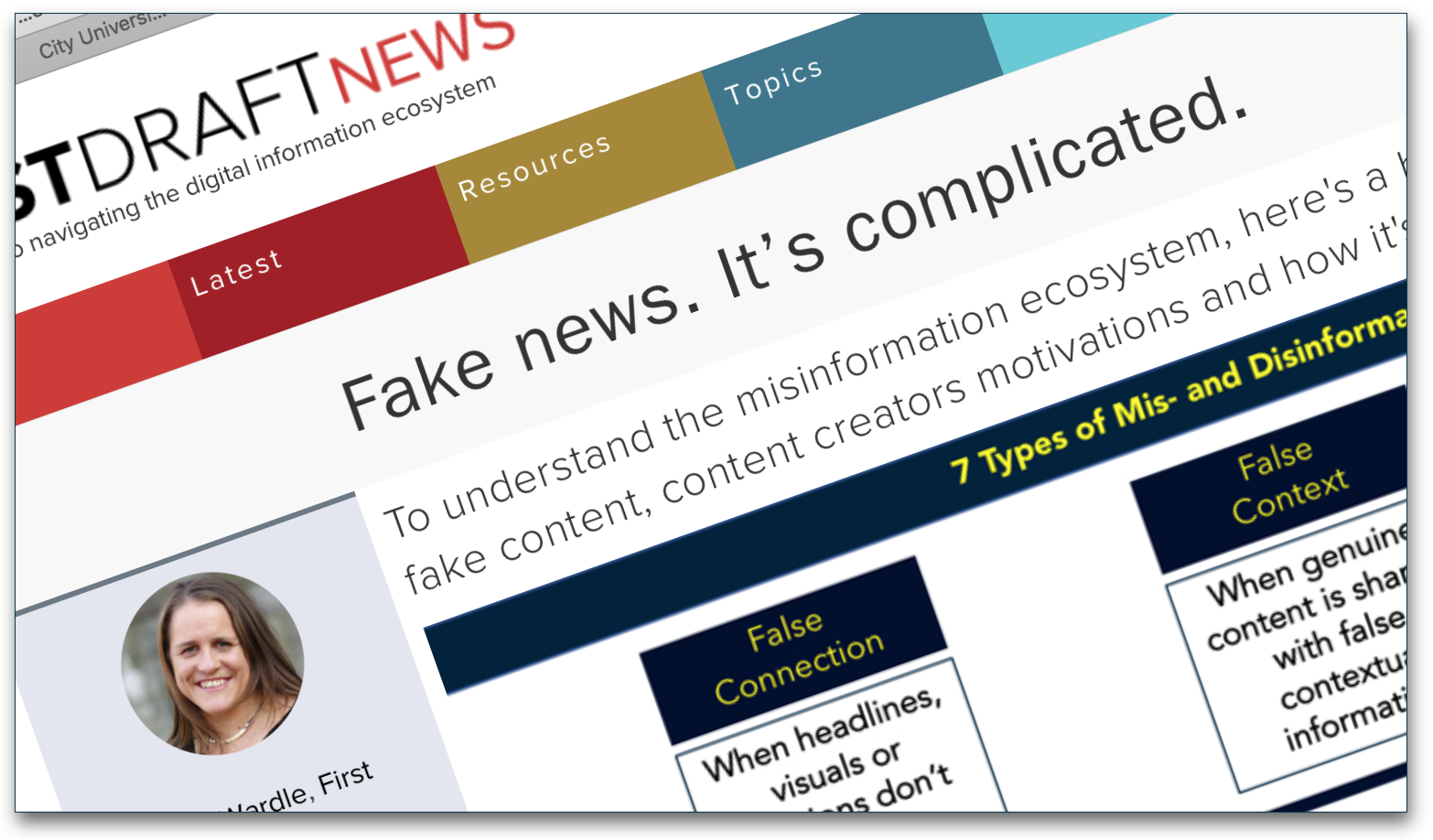
Defining the real forms of Fake News
The lovely, lovely First Draft Coalition has been doing some excellent work in unpicking the roots of the real “Fake News”, before that phrase got co-opted. In particular, research director Claire Wardle has expended on work by Elliot Higgins to define the reasons why people create misinformation and disinformation, taking his “4 Ps” up to “8 Ps”:
- Poor Journalism
- Parody
- to Provoke or ‘Punk’
- Passion
- Partisanship
- Profit
- Political Influence or Power
- Propaganda.
Our consistent vulnerability

Why is this so important? Readers of this blog are surely intelligent, critical thinking people of the world, not prone to being influenced. Well, you more be more vulnerable than you think, as Claire points out:
When messaging is coordinated and consistent, it easily fools our brains, already exhausted and increasingly reliant on heuristics (simple psychological shortcuts) due to the overwhelming amount of information flashing before our eyes every day. When we see multiple messages about the same topic, our brains use that as a short-cut to credibility. It must be true we say — I’ve seen that same claim several times today.
Any student who has had the misfortune to come in my orbit for the last couple of years has had verification as a critical skill drummed into them, and journalists are a key part of that. But we need a more sceptical, more critically thinking populace, too:
We all play a crucial part in this ecosystem. Every time we passively accept information without double-checking, or share a post, image or video before we’ve verified it, we’re adding to the noise and confusion. The ecosystem is now so polluted, we have to take responsibility for independently checking what we see online.
And the work First Draft are doing to understand and unpick the ecosystem are a useful weapon in this fight.
Sign up for e-mail updates
Join the newsletter to receive the latest posts in your inbox.










